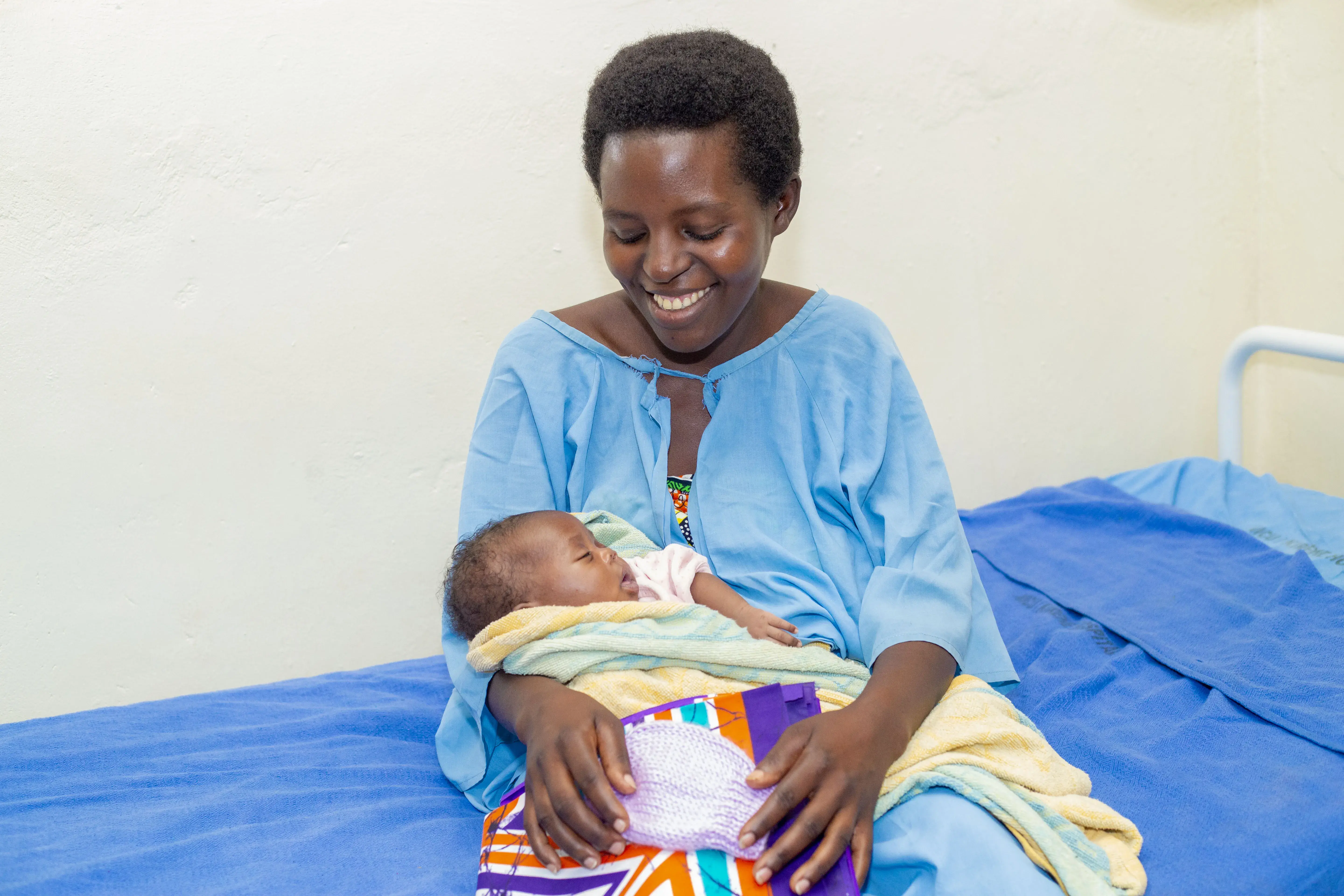Fifty years ago, the world declared that “parents have a basic human right to determine freely and responsibly the number and the spacing of their children,” at the United Nations International Conference on Human Rights in Tehran, on 13 May 1968.
Family planning is not only a matter of human rights; it is also central to women’s empowerment, reducing poverty and achieving sustainable development. When a woman can plan her family, she can plan her life. She can pursue more education, seek and keep better jobs, and contribute more to her family, her nation and to global prosperity. As she becomes better-off financially, her children receive better education, and the benefits carry over well into future generations.
Mukeshimana Lucie has been married 22 years and as a mother of three, expresses how family planning has made a difference in her life, “I feel stronger and can help my husband to work on income generating activities. I have enough time for my husband and children and love in our home has been restored.”
Today, as Rwanda joins the globe in celebrating World Population Day 2018 under theme “Family Planning is a Human Right”, preparations are underway for Rwanda to host the 2018 International Conference on Family Planning (ICFP2018) in November. Rwanda has been chosen for its family planning successes and experiences gained that can serve lessons as the World strives to achieve target under SDG 3, “universal access to sexual and reproductive health-care services, including for family planning, information and education”. Despite tremendous global progress, hundreds of millions of women, men and young people remain unable to exercise the right to plan their families, and 214 million women still lack modern contraceptives.
And as Rwanda celebrates successes, recognizing progress should become the basis for further steps to reaching the last mile, as contraceptive prevalence rates have halted [slow increases from 45% (2010) to 47.5% (2015)] and the unmet need for family planning unchanged (19%) with a total fertility rate of 4.2 (2015).
Mukeshimana takes it upon herself to help other women in her community, “I do voluntary sensitisation within my village and I have got six couples who have used permanent methods of family planning.”
As Rwanda celebrates the theme of World Population Day over July, the country will go beyond events to partner with communities in outreach campaigns to promote access to family planning information and services. In the spirit of leaving no one behind, this year’s national commemoration will take place on 28 July in Karongi District - one of the districts with the lowest proportion of women (or their partners) using a contraceptive method.
Government, parliamentarians, development partners, the private sector and civil society must join efforts to end all unmet need for voluntary family planning. The right to family planning permits the enjoyment of other rights, including the rights to health, education, and the achievement of a life with dignity.
Family planning has improved Mukeshimana’s life and the life of her family. The choice it presents has opened up many possibilities, as her husband highlights, “we bought a piece of land where we grow crops, built a good house and have bought some domestic animals to supplement our income. Finding school fees for our children is not a problem anymore.”
Not only family benefits, ensuring universal access to reproductive health services, including family planning, can ultimately speed-up a country’s progress towards reducing poverty and achieving global development goals. Investments in family planning today are investments in the health and well-being of millions of women and families for generations to come.




